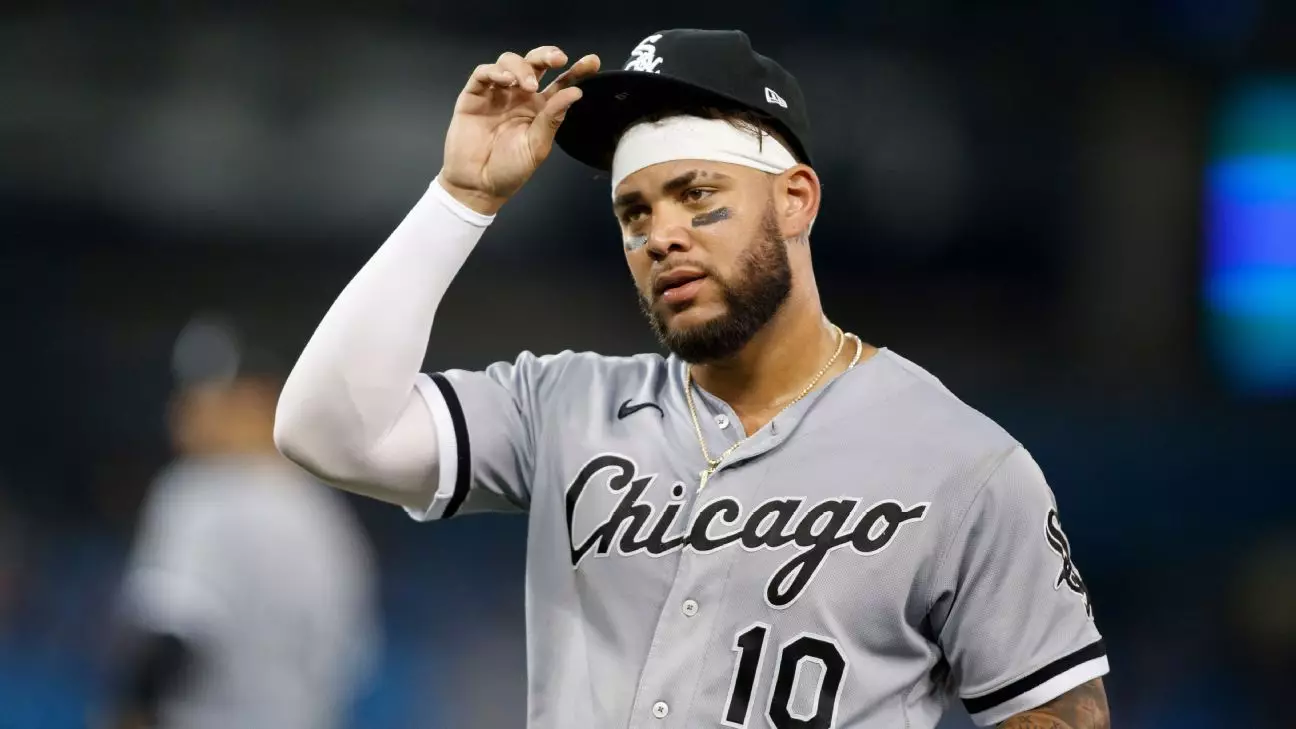The Los Angeles Angels have recently made headlines by signing third baseman Yoan Moncada to a one-year, $5 million deal, a move that reflects the team’s urgent need for a strong lineup heading into the 2025 season. This acquisition is emblematic of a larger strategy employed by the organization’s management, particularly General Manager Perry Minasian, who is focused on building a competitive roster amidst uncertainty regarding existing players, particularly Anthony Rendon.
Moncada’s arrival is a significant one, as the Angels likely intend to solidify the third base position after the underwhelming performance of Anthony Rendon, who joined the team with high expectations following a colossal seven-year, $245 million contract. Despite an impressive start in his career, Rendon has struggled mightily due to a series of injuries and poor performance metrics, culminating in a disappointing production rate with only a .666 OPS over the past four years. His lack of game participation—appearing in less than a third of the games since his signing—has illuminated the necessity for the Angels to explore reliable alternatives.
By securing Moncada, the Angels not only fill an immediate void but also create a competitive playing environment. Over his career, Moncada has proven to possess a strong skill set, showcasing versatility as a switch-hitter who has excelled defensively at third base. However, his last few seasons have been marred by injuries and lackluster offensive performances, casting doubt on his ability to live up to his former potential as a top prospect coming out of the Boston Red Sox farm system.
The introduction of Moncada also raises questions about the future of Anthony Rendon within the Angels’ lineup. With two years remaining on Rendon’s hefty contract, the club must grapple with the realities of his diminishing role. Moncada’s ability to fill in at third base means Rendon may find himself relegated to a backup role—or worse, without a clear position in the lineup.
Rendon still holds the potential to contribute significantly if he can manage to stay healthy and regain some previous form. The Angels could benefit from employing him as a designated hitter or utilizing him as a substitute for Moncada against left-handed pitching, particularly as he possesses a left-handed bat. However, given the series of injuries that have plagued Rendon—including issues with his lower back, oblique, hamstring, and knee—the outlook for his resurgence remains uncertain.
Moncada slots into a broader offseason plan for the Angels that has also included notable signings, such as outfielder Jorge Soler and starting pitcher Yusei Kikuchi. Each acquisition indicates a determined effort to fortify the roster against the backdrop of a turbulent previous season, during which the franchise’s shortcomings were starkly highlighted.
Moncada’s contract illustrates a strategic pivot, a calculated risk taken by the Angels that could either pay dividends or create further complications, depending on the players’ performances. The franchise is at a crossroads, needing to maximize talent acquisition while confronting the limitations set by existing player contracts and performances.
The Los Angeles Angels’ signing of Yoan Moncada encapsulates the urgent need for positional stability while navigating the increasingly uncertain landscape of player health and performance. The decision reflects an understanding of both immediate needs and long-term implications, acknowledging the disappointing trajectory of Anthony Rendon’s career since his signing. As the Angels prepare for the 2025 season, all eyes will be on Moncada and the management’s ability to balance new acquisitions with existing contracts, aiming to alleviate the struggles of previous years and return the franchise to competitive relevance in Major League Baseball.


Leave a Reply